Change Agility
By Bruce Griffiths M.S.
“The only thing that is constant is change.” This 2,500-year-old quote reminds us why Change Agility (and its variations Adaptability and Flexibility) has been a part of the leadership competence set for millennia. Indeed, it’s often said that leadership is about change. This implies that leaders must do much more than adapt to differences. They must lead organizational change by modeling flexibility and curiosity, and by generating new strategies and tactics.
The Polaris® Competency Change Agility relies on a subset of competencies that are especially relevant in our current volatile, uncertain, and ambiguous world. As you do a personal inventory of your readiness for change, consider these supporting competencies and reevaluate your knowledge and skills in each area.
- Communicativeness: It’s often said that you cannot over-communicate during times of change. Are you communicating the necessary agenda in the right medium often enough? How are you at Active Listening, Informal Communications, and Written Communications?
- Composure: As a leader your emotional reaction to change can become the emotional reaction for your team. Controlling your own emotions and inflecting the right emotion at the right time is important. That means resisting the stresses inherent in change. Be aware of the message you’re sending. Remember, as much as 70% of your message is non-verbal.
- Drive/Energy: This is the source of your personal positive presence. Do you motivate and inspire? Do you have grit? Are you hearty? Are you taking care of your emotional and physical health to stay balanced, present and effective?
- Learning Agility: Are you curious and open-minded? The ideas needed to adjust to change will demand it.
- Positive Impact: Expectations can color outcomes and your positive (or negative) attitude will signal what you expect from others. Are you optimistic? Do you have a win-win mindset?
- Relationship Building / Sensitivity: Leadership is primarily about relationships. Do you empathize with members on your team? Are you aware that your personal attention to followers is especially important during turbulent times? Are you committed to building authentic and trusted relationships throughout your organization?
How your personality interacts with all these necessary skill sets is another factor to consider. For example, my (introverted) agreeable self has an easier time recharging in my new remote world, and I’m naturally a bit more empathetic to current circumstances, but I’m driven to seek structure and closure (I’m highly conscientious) and that may negatively impact my spontaneity and willingness to pivot after a decision is made.
Good leadership is so important right now. We hope we’ve helped move the needle a bit for you and your team. For further questions on leadership and OSI’s leadership competency models please contact Crystal Matsuura at OSI by email at cmatsuura@orgsysint.com or phone at 858-455-0923.


